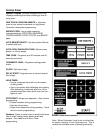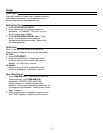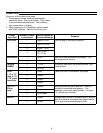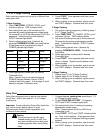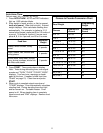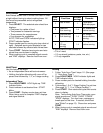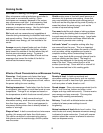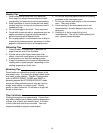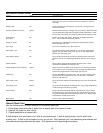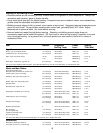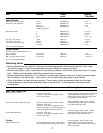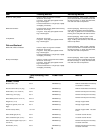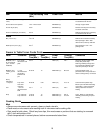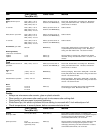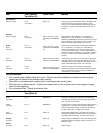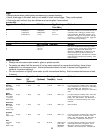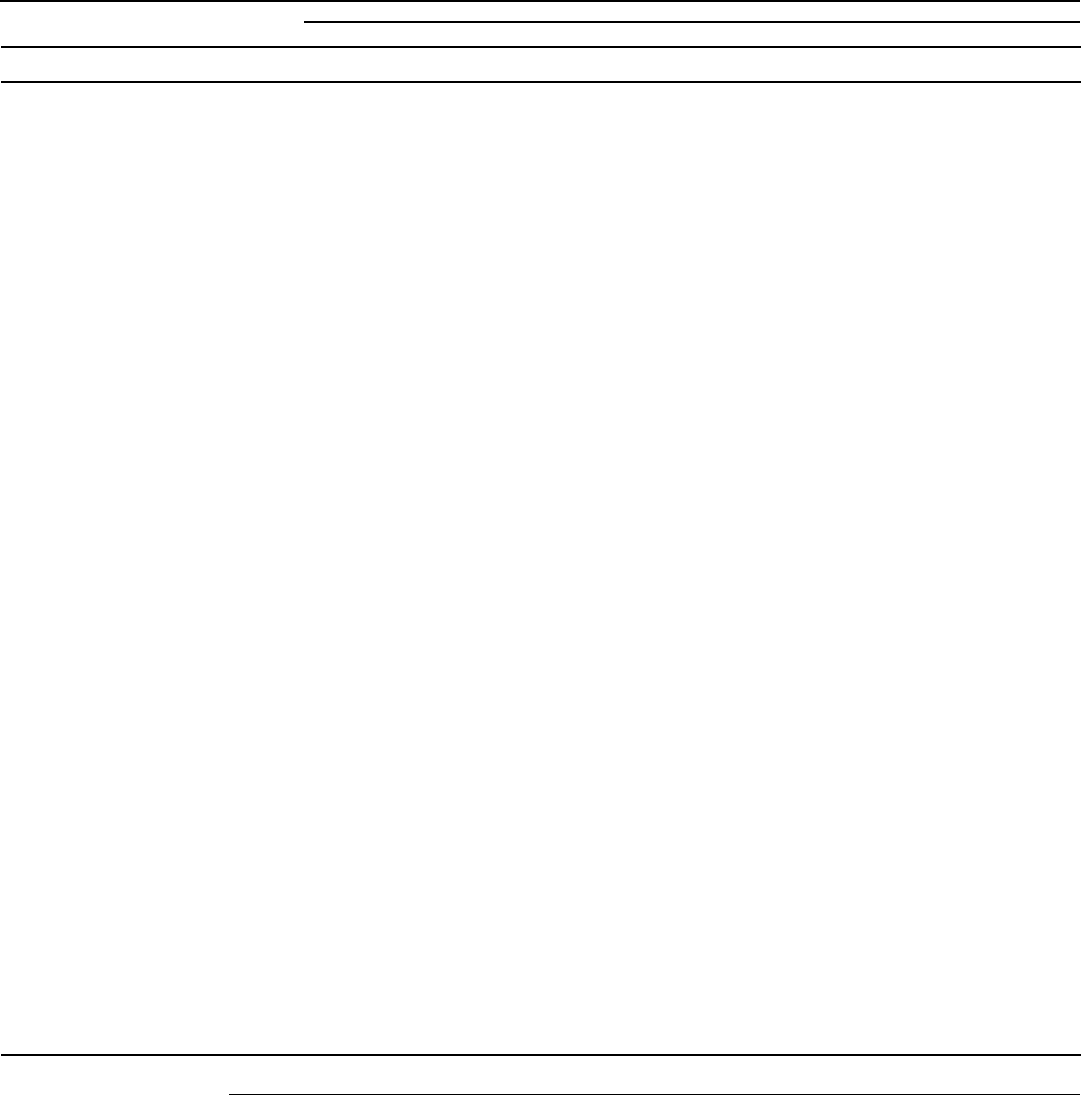
15
Microwave Utensil Guide
ITEM USE COMMENTS
Aluminum foil
Browning dish
Ceramic, porcelain, stone ware
Glass-ceramic
Oven-glass
Glass jars, dishes
Paper bags
Paper plates, cups
Paper towels, napkins
Plastic cookware
Plastic storage and food containers
Plastic wrap
Straw, wicker, wood
Foam plates, cups
Thermometers
Waxed paper
For shielding
Yes
Limited
Yes
No
No
Yes
Yes
Yes
Limited
Yes
Limited
Limited
Yes
Yes
Small amounts or foil prevent overcooking of thin areas, edges and corners.
Arcing may occur if too much foil is used or if it is less than 1-inch from
oven walls.
Check manufacturer's instructions for use and care. Do not preheat for
more than 8 minutes.
Dinnerware with metal trim or designs may cause arcing. Older dinnerware
may not withstand the temperatures transferred from cooked foods. Check
for microwave-safe labeling, or perform the "Microwave Utensil Test" below.
Excellent for cooking and heating. Most items are labeled "microwave-
safe". Look for this when purchasing utensils.
Most items can not withstand the temperature transferred from cooked
foods. Breakage may occur.
Do not use in microwave oven. May cause fire.
For short-term heating at low temperatures. Do not use recycled paper
products; they may cause arcing or fire. Do not use wax coated paper
products; the coating may melt.
Use for short-term heating and covering, to absorb moisture and prevent
spattering. Do not use recycled paper products; they may cause arcing or
fire.
Use only sturdy plastic products labeled "microwave-safe". Check
manufacturer's directions for microwave uses.
Check manufacturer's directions for microwave uses of storage containers.
Food containers such as margarine tubs are not designed to withstand the
temperatures transferred from cooked foods, and may melt.
Use only wrap labeled "microwave-safe". Use as a cover to hold in steam.
Cover dish loosely, turning back one corner to vent steam. Avoid direct
contact of wrap with food.
Use for short-term heating at low temperatures, such as for serving breads
or rolls.
Use for short-term heating at low temperatures. Using at high temperatures
or with foods high in fat will cause melting.
Candy and meat thermometers labeled "microwave-safe" may be used in
the microwave oven. Conventional candy and meat thermometers may be
used to check temperatures after removing food from oven. Always check
temperatures in several places in food.
Use as a cover to prevent spattering.
Utensil Check Test
Use the following test to check utensils for microwave safeness:
1. Place glass measuring cup of water next to empty dish to be tested in oven.
2. Heat on full power for one minute.
3. Check temperature of tested dish.
If dish remains cool and water is hot, dish is microwave safe. If dish is slightly warm, use for short term
cooking only. If dish is hot and water is cool, do not use. Dish remains cool if not absorbing microwaves and
microwaves are being absorbed by water. Dish becomes hot if absorbing microwaves.



